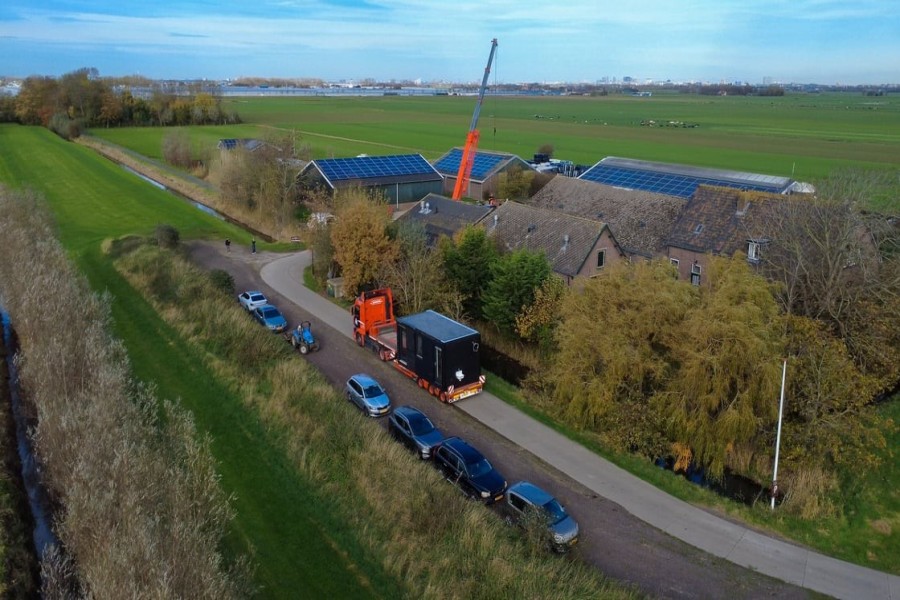
- Industry news
Industry news
- Category news
Category news
- Reports
- Key trends
- Multimedia
- Journal
- Events
- Suppliers
- Home
- Industry news
Industry news
- Category news
Category news
- Reports
- Key trends
- Multimedia
- Events
- Suppliers
World’s first cultivated meat farm launches in the Netherlands
Key takeaways
- The Netherlands has launched the world’s first farm producing cultivated meat directly on-site.
- The pilot aims to show how farmers can integrate cell-based meat production as a new income model.
- The project is backed by major agricultural innovation funding and will serve as a research and demonstration hub for future “cellfarming.”

A first-of-its-kind project sees a working farm in the Province of Zuid-Holland, in the Netherlands, being equipped to produce cultivated meat. The farm will demonstrate how farmers can produce meat directly from cells and integrate cultivated meat production into their existing farm operations.
The next few weeks will see cultivated meat units installed and operational, following a collaboration between RespectFarms and dairy farmer Corné van Leeuwen, and is supported by the European Innovation Partnership for Agricultural Productivity and Sustainability (EIP-Agri) and the Province of Zuid-Holland.
Cultivated meat is produced by growing animal cells in a controlled environment, rather than raising and slaughtering animals. Small tissue samples, such as muscle cells, are placed in bioreactors, while nutrients, oxygen, and temperature are controlled, allowing them to grow into viable meat.
This is a burgeoning industry that aims to produce meat with significantly lower social and environmental impact, use less land and water, and generate fewer GHG emissions compared to conventional livestock farming.
The farm is expected to generate critical knowledge and opportunities for livestock farmers and policymakers.
Pilot farm to produce cultivated meat
Designed and implemented by RespectFarms, a farm-scale cultivated meat production unit has been integrated into Corné van Leeuwen’s existing dairy operation. This will create a real-world test center for learning how cultivated meat production can complement livestock farming.
Corné van Leeuwen is the first farmer in the world to receive agricultural funding for cultivated meat production, and will be supported through EIP-Agri, which connects farmers, researchers, and businesses to accelerate innovation in agriculture across Europe.
Testing a completely new food technology on an active farm, as an additional business model, has never been done before and is hailed as a significant step forward in cultivated meat production.
RespectFarms integrates cultivated meat and the knowledge of technology partners to develop a scalable, on-farm cultivated meat model.
 The site in the Province of Zuid-Holland, in the Netherlands which will be equipped to produce cultivated meat.
The site in the Province of Zuid-Holland, in the Netherlands which will be equipped to produce cultivated meat.
Advanced agri-tech
The start-up supports a “scale-out” model, which introduces advanced agritech to farms. It supports innovation, income diversification, and locally rooted food production, while contributing to the development of more resilient food systems.
“We’re building a model where livestock farmers remain at the center of food production, not replaced by factories. The Netherlands has a long history with cultivated meat. With the world’s largest investment from the National Growth Fund into the Cellulaire Agricultuur Netherlands foundation, this position is also secured in academia, scale-up facilities, education, and industry collaborations,” Ira van Eelen, co-founder of RespectFarms and Cellular Agriculture Netherlands, tells Food Ingredients First.
“Besides that, the Netherlands is an agricultural powerhouse and hub; it makes sense to start this here.”
Van Elen explains that when cultivated meat got traction after the development of the first-ever cultivated meat hamburger in 2015, somehow the origin of the cultivated meat initiative, “as an additional business model for farmers and the outcome of the first-ever research,” got lost in a centralized scale-up focus and endeavor.
“Upon witnessing this, some researchers, the RespectFarms team, and also EU research got together with farmers interested in a scale-out approach and started working, validating, and researching this route to market.
“We are supported by public grants for doing the research, and this first proof-of-concept farm is the result. In the coming years, it will remain focused on research and validation.”
Van Elen expects to be able to optimize farm production in a way that will enable more farms to be built between 2028 and 2030.
Commercialization on the horizon
“The biggest challenge is getting funding for a long-term project like this. But our approach has been successful with step-by-step validation of our ideas and working from farm needs instead of tech possibilities.”
Van Elen also expects to see food companies working with farmers once cultivated meat is ready for the market.
“There are several possibilities; they can make products themselves for a local market or work collaboratively with meat producers. This is one of the strategies we will work on at the farm and with our farmers.”
“We expect tastings in 2026, but it’s hard to give a date on when we expect to enter the EU market. We do hope the EU understands that we intend to export farm-tech, not cultivated meat.”
EU research has also predicted that by 2040, around 5% of farmers will be “cellfarmers.” They have space, consumer trust, and the right background to be an important part of new ways of producing meat and food.
“Let’s not forget that is what farmers have always done, being in the forefront of food innovation. This is an opportunity to make the protein transition fair, transparent, and rooted in rural communities,” he notes.











